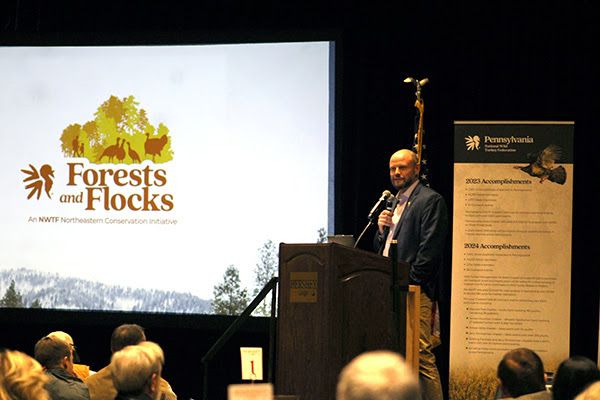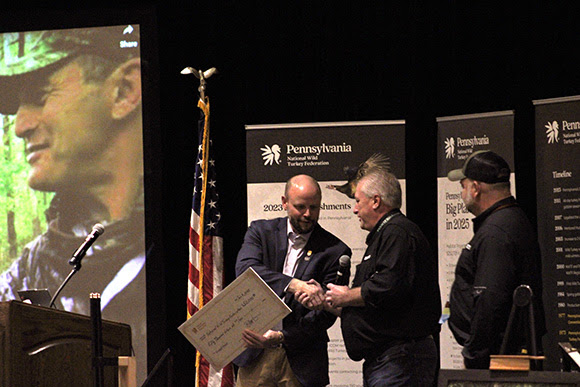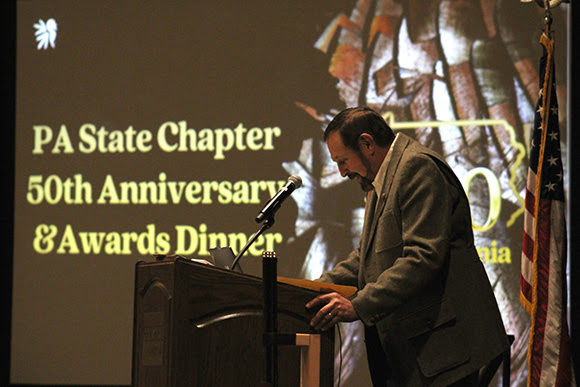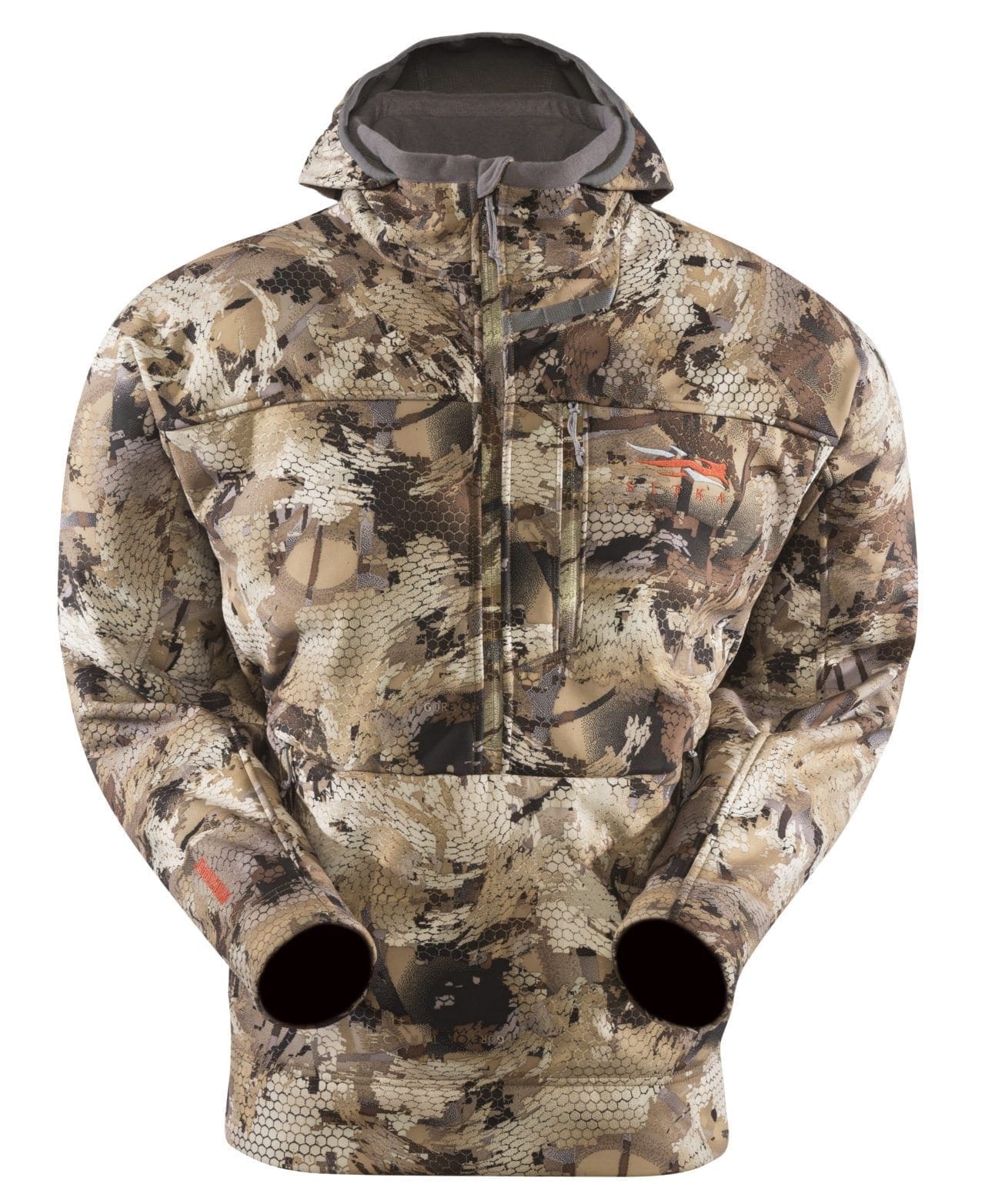NWTF Pennsylvania Celebrates 50 Years, Makes Strides in Landscape-Scale Conservation

EDGEFIELD, S.C. — The Pennsylvania NWTF State Chapter celebrated its 50th Anniversary in Hershey this past weekend, welcoming dedicated conservationists from across the Northeast for a two-day celebration. NWTF co-CEO Kurt Dyroff, NWTF Distinguished Professor Mike Chamberlain, Pennsylvania Game Commission Wild Turkey Biologist Mary Jo Casalena, and numerous other esteemed speakers highlighted the state of the wild turkey, both across the country and within the Keystone State. While the Pennsylvania NWTF State Chapter volunteers looked back at the last five decades, they also looked forward to the next 50 years of NWTF mission delivery.
Continuing their legacy as leaders in conservation efforts, the Pennsylvania NWTF State Chapter contributed $50,000 to the NWTF’s Forests and Flocks Initiative, supporting projects in Pennsylvania and across the initiative’s 13-state region.
“This donation will spark a flame across the Northeast,” said Dave Boston, Pennsylvania NWTF State Chapter president.
Boston also added that the Pennsylvania NWTF State Chapter sees their donation as an opportunity to foster collaboration with neighboring states, recognizing the opportunity to make an impact across state boundaries on a landscape scale.
Dyroff accepted the $50,000 donation and praised the chapter’s strong local support for the Forests and Flocks Initiative. Dyroff spoke about how the NWTF is striving to achieve a nation united by the life-changing power of the outdoors.
“The NWTF is the only outfit out there that connects habitats, conservation and hunting, and we’re proud of that,” Dyroff said.
The co-CEO also emphasized the importance of education and outreach efforts to maintain support for hunting traditions.
Chamberlain, the NWTF’s first endowed professor from the University of Georgia, emphasized this during his keynote presentation, “The State of Wild Turkeys: Then and Now.”
Chamberlain captivated the audience by asking members how they plan to mentor young people to carry conservation forward. He provided a national overview of wild turkey conservation, which complemented Casalena’s presentation on Mid-Atlantic conservation and research efforts.
Casalena and her team highlighted Mid-Atlantic-specific projects designed to improve habitat management and populations.
Additionally, Rob Keck, former NWTF CEO and hunting icon, also attended the event to celebrate Pennsylvania’s achievements. Before the celebratory dinner, he highlighted the successes of conservation initiatives, underscored the importance of recruiting young hunters, and discussed efforts that lowered the minimum hunting age. Pennsylvania’s success in passing this legislation has since influenced similar changes in 48 other states.
The event also honored the legacy of Don Heckman, who championed the NWTF and PGC’s efforts to conserve the wild turkey. Heckman helped start the Pennsylvania State Chapter in 1975 and relentlessly pursued the scientific management of the wild turkey. Heckman passed away in 2016, but his legacy lives on through the success of the Pennsylvania NWTF State Chapter. Heckman’s contributions to the wild turkey were seen at the event through his photographs, awards and other memorabilia that were displayed.
About the National Wild Turkey Federation
Since 1973, the National Wild Turkey Federation has invested over half a billion dollars into wildlife conservation and has positively impacted over 24 million acres of critical wildlife habitat. The NWTF has also invested over $10 million into wild turkey research to guide the management of the wild turkey population and to ensure sustainable populations into perpetuity. The organization continues to deliver its mission by working across boundaries on a landscape scale through its Four Shared Values: clean and abundant water, healthy forests and wildlife habitat, resilient communities, and robust recreational opportunities. With the help of its dedicated members, partners and staff, the NWTF continues its work to provide Healthy Habitats. and Healthy Harvests. for future generations.



